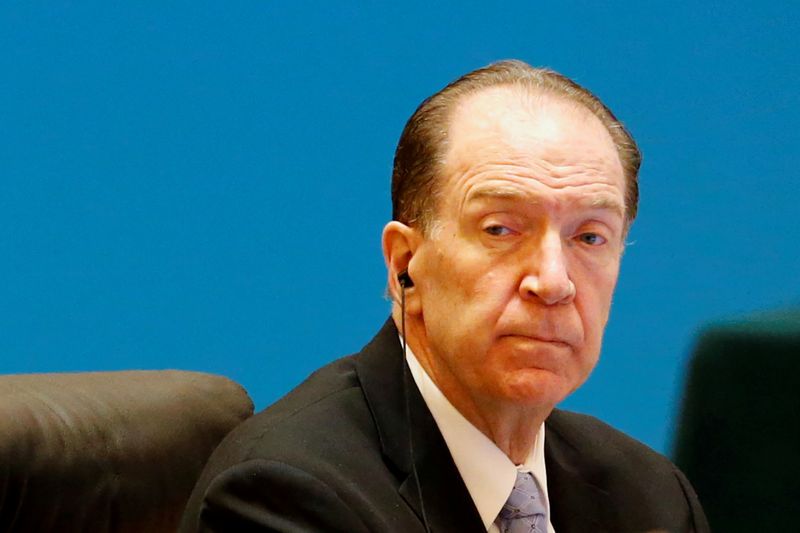WASHINGTON (Reuters) – World Bank Group President David Malpass on Friday said he was confident of progress on his joint call with the International Monetary Fund for a temporary standstill in official bilateral debt payments by the world’s poorest countries.
Malpass said the proposal would be discussed next week by finance officials of both the Group of Seven (G7) and Group of 20 (G20) economies, and he expected a “broad endorsement” by the 25-member joint Development Committee of the World Bank and IMF when it meets on Friday.
“The world’s poor are looking to the international community to show decisive leadership on debt relief, and I am confident of progress,” he said in a posting on LinkedIn.
The World Bank and the IMF first issued their call for debt relief on March 25. The initiative won significant backing over the past week, including from the Institute of International Finance, a group that represents over 450 global banks, hedge funds and other financial firms.
The proposal calls for China and other big creditors to suspend debt payments from International Development Association (IDA) countries beginning May 1, freeing up resources for them to fight against the pandemic. The IDA countries are home to a quarter of the world’s population and two-thirds of the world’s population living in extreme poverty.
Malpass said the proposal was discussed twice this week during working-level meetings of the G20, and would be on the agenda during virtual ministerial level meetings next week.
Two sources familiar with the discussions said G20 finance officials were likely to endorse the proposal when they meet online on April 15. The issue is particularly critical for G20 member China, which has sharply increased lending to developing countries over the past two decades.
China’s government, banks and companies lent some $143 billion to Africa between 2000-2017, much of it for large-scale infrastructure projects, according to data from Johns Hopkins University. By some estimates, Chinese lending now dwarfs World Bank loans in Africa.
Malpass said borrowers that requested forbearance would be expected to ask for “at least comparable terms” from commercial creditors. In return for the suspended payments, beneficiary countries would commit to debt transparency and agree to direct additional resources toward health and economic needs, he said.
He said the World Bank and IMF would work closely with IDA countries and creditors to evaluate each country’s debt sustainability outlook based on reconciled debt data and debt service requirements.
Malpass last month said IDA countries faced official bilateral debt service obligations of $14 billion through the end of 2020.
(Reporting by Andrea Shalal; Editing by Alistair Bell and Daniel Wallis)






















